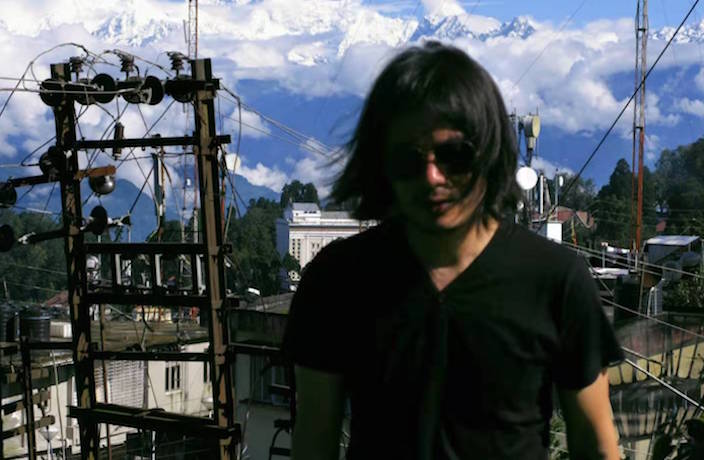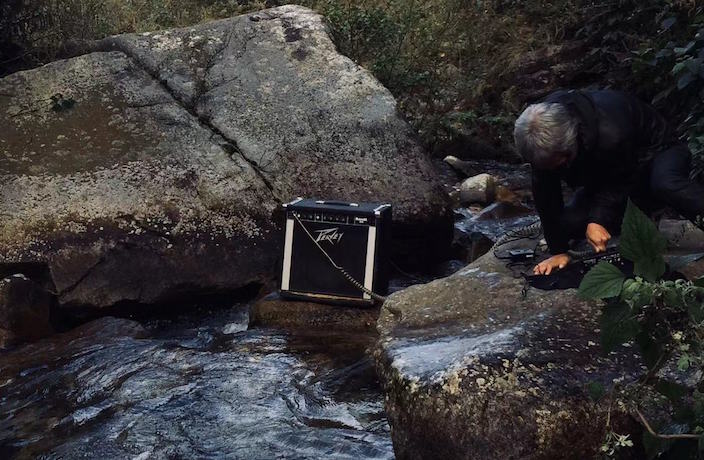The multitalented Patricia Luce Chapman has written for the Associated Press, won country music songwriting awards and oversaw two international non-profit organizations for 20 years. In her fourth book, Tea on the Great Wall, she looks back at her childhood in Shanghai, where she attended grandiose parties held by the Sassoons before fleeing with her family prior to the full-blown war with Japan. She shares her stories, providing a rare glimpse into this legendary era.
How has your trip been?
It’s been an amazing experience. We went to Beijing and went to the Mei Lanfang family restaurant in one of those hutongs that are so beautiful. (Publisher) Graham (Earnshaw) happened to mention that I met Mei Lanfang and the restaurant gave me a special fan with his signature on it. So in my talk, I'm going to be using that fan.
You met Mei Lanfang?
I was very fortunate that my parents were people that truly loved China. They had many friends among expats but also among the Chinese. Our home had everybody in it. So at one of the parties, I put a flower pot on my head and tried to dance and fell down. Mei Lanfang was one of the guests who came and he stopped me. He showed me how to use the hands and taught me to uncurl the arm, how to toss the scarf. You will find out all about at Friday’s lunch.
 So when did you come back to Shanghai?
So when did you come back to Shanghai?
I took the train because I wanted to see the countryside. There are some pretty terrible buildings, but some of the things I remembered like the mountains and pagodas were there. I remember the rice paddies from being a little girl so I saw things that I loved. I thought of all the years I was away and it made me very happy to be here.
But then Shanghai was a shock. I still haven’t seen much that’s familiar to me. I understand some of the most beautiful places have been made into apartment buildings. Certainly in Beijing, some of the beautiful imperial gardens have been turned into factories.
And you can’t see the Bund. And when you’re there, you can’t see the boats. When I was growing up, you walked out to the edge of the water and there were sampans right there. It used to be the most exciting place for me. I remember standing at the edge, talking to the people in the sampans and looking at the boats in the harbor. It was beautiful. I missed that very much and I’m sorry that it’s gone. I don’t know why they would close the view of the water. It’s a big attraction.
Where did you grow up in Shanghai?
Just outside of the International Settlement, on the same street as JG Ballard, who wrote Empire of the Sun. It was run by Americans and the Hungarian architect Hudec was involved. I know he helped design my house.
Growing up did you move around the concessions?
We were in and out all the time. It was fun going from the International into the French and into the Old China part. It was very open in that way and I was a very happy girl. It was only when the Japanese came. They put up these barbed wire barricades guarded by Japanese soldiers with bayonets and angry dogs. I remember they made our chauffeur, a wonderful guy named A Qing, get out and bow down. They got angry because he didn’t bow down far enough. My brother got mad and got out of the car to fight the Japanese, but A Qing told him to get back and it was ok. It got to be very unpleasant in Shanghai.
Were you aware of this escalating tension growing up?
Oh my goodness yes. The book opens with the 1932 shelling of Zhabei. The whole house was shaking. Our dog was running around because the noise was hurting its ears. Shanghai is so open-hearted, it takes in all these people – my governess was a Russian refugee and I remember her saying, ‘We just got away and thought we were safe and now we have to worry about the Japanese.’ At that time, they didn’t bother me because the war was over after three months. But I will never forget the sound of the mortar shells. I will never forget my dog crying, the windows shaking and the smell.
It was more serious after July 7 and the big fight on Marco Polo Bridge. After that everything changed, when the Japanese moved into Shanghai. That’s when the tragedy began. Thousands of Chinese people dying in the streets.
My brother went to school at the Shanghai American School in the French Concession and we were comparing our reactions when I was writing my book. He said the smell of the dying people was so strong when he bicycled to school. I had the same feeling where I lived.
I remember the Chinese trying to escape from the Japanese came to the International Settlement, which was safe. Except that there was nothing for them – no work, no food, no electricity, no sanitation, no hope. Families would enter a space as big as a doorway, put mats down and wait to die. The smell of despair is a very awful thing and it stayed with me. I can’t stand poverty.
I had to look at photographs to help remember. I would see the Chinese people struggling to get over the Garden Bridge – thousands of people. And I sat there and cried and cried. All the crying I didn’t do before, I did in the last four years writing the book. A lot of the book is about the color and smell of war.
What are some of the more surprising parts of life during that time?
I went to a German school in Shanghai. It was a very good school and then Hitler came to power, and then the school began to change. They took away the nice teachers, they put in Nazi teachers who would have secret meetings and rallies at night against Jewish people. (An estimated 20,000 Jewish refugees came to Shanghai from 1938-41.) For me to see the school change, I had to leave the school. I couldn’t go around saying ‘Heil Hitler.’
The book references tea. How often were these tea parties?
All the time (laughs).
The book also mentions the Sassoon family. Did you go to their famous parties?
We went every year. Sir Victor gave a big costume party for the privileged children every year. Some were at the Metropole, some at the Cathay (now the Peace Hotel). I still have invitations for two different parties. Those were tremendous fun. The main thing I remember in addition to the costumes was that he had presents for all the children. One year, my brother got a camera. I was so mad, because I got some little doll I didn’t want. The next year, I got a camera. (laughs)
As an American, how do you feel about the way China is portrayed there?
I think it’s terrible. A lot of Americans don’t know history – they don’t know the Japanese invaded China. It’s ignorant, so they don’t understand. To me, it’s necessary that China defends herself against invaders. China wants to be strong and not have any more occupation from foreigners. This is obvious and I feel strongly about that.
One reason I wrote this book is to show that people took advantage of the Chinese. The Opium War was so awful. I hope that somebody in America will read the book and begin to learn about the history. If they learn the history, they would understand why. To me it’s a mircale that China has been able to move from being totally bankrupt, divided up, ruined by the Japanese and completely disadvantaged at the end of World War II to having so much so strength.
I think it’s a miracle and I’m very proud that this has happened. Who knows, it might become THE superpower. It could be fun. (laughs)
Is there anything you have to do before you leave Shanghai?
I have not done any sightseeing yet. I have to go to my house and to the museum to see the bronzes and porcelains. I want to see some of the places from my childhood. I’ve seen Nanjng Road – it doesn’t look like anything that it was before. It’s so ugly with the buildings.
What has given me the greatest joy since I landed in Beijing was that the Chinese people haven’t changed. They’re kind, warm, intelligent, resourceful people and they have not changed. My love is well placed. It makes me very happy that my China is still here.
> Nov 6, noon, RMB120. Glam, tickets.
> Tea on the Great Wall is available on Amazon.
> Check out our full preview of the Shanghai International Literary Festival and our festival related features.






















0 User Comments